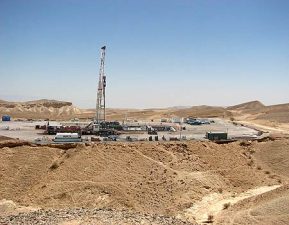While tunnel smugglers in Gaza get blown out by sewage flushed into the tunnels from Egypt, Palestinian prisoners have found a new commodity to smuggle: their sperm!
Six-month-old Muhannad Al-Zaben is already a celebrity among Palestinians, the so-called “Freedom Ambassador”. He is the result of smuggled sperm his father Ammar transferred to his mother Dalal during a prison visit in 2006. Now a Palestinian fertility specialist says four other Palestinian women have become pregnant using similar secret methods, as security prisoners and their wives find a way to become parents while the father is still behind bars.
Faced with a ban against conjugal visits, the prisoners, accused of attacks against Israelis, and their wives were forced to come up with a solution if they wanted to have a family. At a press conference in Nablus this week, the head of the Razan Infertility Center Doctor Salim Abu Khaizaran said “Muhammad is a turning point in the lives of Palestinian detainees. I receive daily calls from detainees’ families asking us to do it.”
Indeed there are more that 40 detainees’ sperm samples at the center. He said many of the wives are awaiting results or a turn for the wives to be inseminated.
Sources told The Media Line the samples were delivered in a secure way to ensure that they belong to the husband, while doctors said the sperm was sneaked out in a complicated process they don’t want to expose.
Israeli officials cast doubt on the veracity of the Palestinian claims.
“The prison service id doubtful about the women’s technical ability to smuggle sperm and then use it as it is being claimed,” Sivan Wayzman, the Israeli spokeswoman of the Prison Service told The Media Line. “There are limitations on prisoners and security procedures surrounding the visit.
She said that husbands and wives are not allowed any physical contact during the 45-minute visit. Only in the last ten minutes are children under age 8 allowed to physically touch their fathers. She also said the women travel on Red Cross buses for several hours, and sperm must be frozen quickly if it is to remain viable.
In contrast, Wayzman said, Jewish prisoners are allowed conjugal visits “every few weeks.” In cases where conjugal visits are not permitted, inmates may father a child by Invitro fertilization.
Al-Zaben’s dream of a child was six years in the making, coming true when she became the first Palestinian woman to deliver a baby this way. The sperm of her husband Ammar, serving 27 life sentences for charges of being affiliated with Hamas, was smuggled out of prison in 2006, and doctors froze the sample.
“My husband’s brother died, and his two sisters got married. Me, my daughters and sisters-in-law didn’t have any men to take care of us,” the happy mother told The Media Line. The couple had two teenage daughters before Ammar was arrested. In a blue-decorated room filled with flowers and balloons, relatives shed tears of joy as they looked at the baby Muhannad – named after a friend of Ammar’s killed by the Israeli army in 2002 – and his mother.
Ammar met his son a few weeks after his birth through a Red Cross family visit, although some prisoners are denied such visits for what Israel calls “security reasons.”
Most Palestinian prisoners’ wives decide to stay with their husbands despite knowing they might never live together as a couple. Few wives in families with children seek divorce. Staying together is seen as an act of loyalty to someone fighting for the cause, but prisoners’ families often give their daughters-in-law a choice between leaving or, if they have no children, waiting for their husbands’ release. Those who stay together seek ways to keep their marriages alive.
Such was the case with Lidia Rimawi, who told her husband about her wish to have a baby after she heard about Al-Zaben’s story. “He was surprised but asked for more time to think,” she told The Media Line.
Rimawi, 35, also heard her biological clock ticking, since she’d be in her 50s when her husband, serving a 25-year-sentence, is released. “He might be able to have children, but I won’t. In the following visit he told me he agreed,” said the mother of a 12-year-old daughter Rand, now excited she will have a sibling.
There are no religious or political stands against insemination with the smuggled sperm. In 2003, religious leaders including prominent theologian Sheikh Yusuf Qaradawi said it was not against Islam if done securely, as the wife of security prisoner Abbas Al-Sayed tried to do it. Late Palestinian Authority President Yasser Arafat and other political leaders backed the idea but her attempt failed and no others were made.
Palestinian society, on the other hand, had its concerns. What would people think if they saw a woman pregnant while her husband was in jail? The question troubled the families and doctors alike.
“At first many people were surprised and said they would ask for the opinion of religious men, but everyone was supportive,” Rimawi said of reactions to her pregnancy.
Al-Zaben also agreed to speak out about the subject at Abu Khaizaran’s request. “The pregnant woman needs all the support she can get. Gossip and accusation of adultery could have affected the mother’s health,” Abu Khaizaran said.
Now Palestinians, believing this is a way to challenge those who imprison them, are more supportive, especially after the public backing Al-Zaben received.
To eliminate any doubts, the medical center asks for three family members from each side of the family to accompany the wife when she handles the sample and when she is fertilized.
Her ignorance caused Rimawi to lose the first sample. “I kept it in the fridge and went to the center the next day, but they told me I ruined it. Luckily I had another one and this time I brought the needed witnesses as asked,” she told the Media Line.
Meanwhile pressure continues to allow the prisoners to pass on their sperm without subterfuge. “Why do the Israeli authorities have regular prison inspection? They know you can’t seal a prison completely,” said Prisoners Club head Qaddoura Fares. Detainees’ centers statistics estimate that over 500 Palestinian prisoners in Israeli jails are serving life sentences.
It’s also not certain if Palestinians would trust Israel enough with their sperm. One prisoner’s wife told The Media Line she had received the semen directly from her husband during a visit. Speaking anonymously, she said she’d been asked to submit an application through the Israeli Authorities but refused. “How would I trust that Israel will not swap it? I preferred to do it between the two of us,” she added.
Abu Khaizaran, whose Razan center is one of the few fertility clinics in the Palestinian territories, said some 70% of the samples received were usable, but the rest were not because they were smuggled in primitive ways.
“The success rate of artificial insemination in Palestine is usually 45%, but in these cases the rate is 35%” Abu Khaizaran said.
Then there is the tricky matter of the baby’s sex. Producing a boy in Arab society is seen as an important achievement for the marriage. Since a woman changes her family name upon marriage and can’t pass her last name to her children, males carry the family’s name for generations. Also males are seen as the breadwinners and caretakers of women in the family.
Out of 12 women inseminated via the smuggled sperm so far, four have been implanted with male embryos. “The process of choosing the child’s gender decreases the possibility of the pregnan cy’s success, but we operate in special cases. For example, if the woman is in her late thirties and already has daughters we help her, but in general we prefer not to choose the sex,” Abu Khaizaran told The Media Line.
Rimawi finds out her baby’s gender soon. “If it’s a boy I’ll name him Majd; if it’s a girl I’ll name her Shahd,” she said, adding she hopes to have more children. “Once I give birth, I will go get artificial insemination again from the frozen samples,” she said determinedly.
As Muhannad Al-Zaben’s birth continues to supply the inspiration for the sperm smuggling, Abu Khaizaran sees another important aspect of the process. “We are doing this for the women’s sake,” he said. “The detainees can conceive at any time, but the wives’ biological clocks are ticking, and we would like to help make their dream come true.”
This article is reprinted from the Middle East News Source – The Media Line; image of prisoner meeting his wife from Shutterstock




